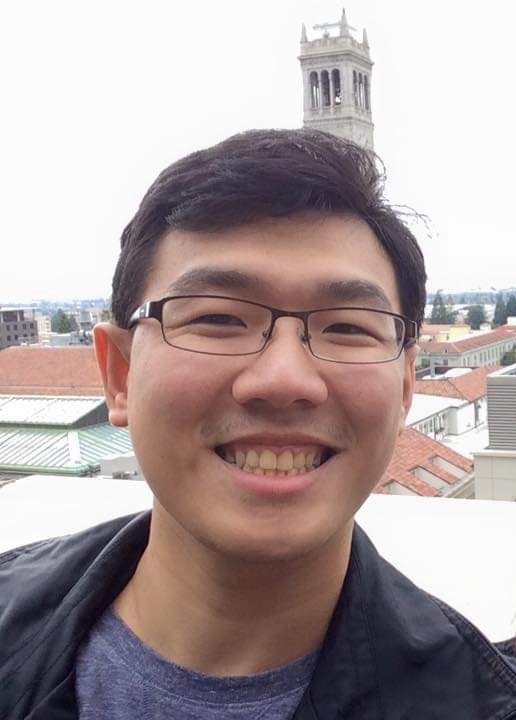As the COVID-19 outbreak worsens worldwide, people are increasingly desperate for any remedy to fight the scourge. Occasionally, snake oil salesmen will peddle pseudoscience just to make a quick buck from the ill-informed and vulnerable. We can do our part by practising media and scientific literacy, engaging in civil and empathetic discussion, and looking out for one another.
One man on a mission to hunt down pseudoscientific products is Dr Wong Han Teng (below), Research Fellow at the Molecular Engineering Laboratory, A*STAR. In between his current duty of helping Singapore scale-up COVID-19 testing, he recently wrote about the ineffectiveness of the EA mask in preventing or treating the disease.

We speak to him about what motivates him to fight such ‘bad science’, and what else the scientific community can do to tackle misinformation surrounding COVID-19.
1. What first motivated or inspired you to ‘chase the story’ on pseudoscientific products?
My strongest motivation for sharing more about bad/false scientific messaging or advertising came from my mum. I realised that my mum frequently gets recommendations that seem to contain a sliver of science in them but warped in a manner that distorts the original science.
I got really concerned when I saw products that I knew from my own background that the product could be releasing toxins. Given that a co-worker wears it to work, I was concerned about my mum’s health. I dug a little deeper and realise that the ‘EA mask’ product actually did not release a high enough concentration of the chemical (chlorine dioxide).
However, it gives false confidence to the user and lulls them into believing that other official measures can be ignored or that this “medical device” is equivalent to wearing a mask.
2. What have been the results of your investigation and research thus far?
After I posted about this, a friend sent me a science article that directly tests the product. Although the article was published in Japanese, there was an English summary—these clip-on badges do not work as claimed. I have also contacted the relevant agencies and found that HSA has released an advisory on this.
However, the advisory stopped short of naming the products which I think limits its effectiveness. I also believe that MTI can take a stronger role in stopping the imports of such products. We also need to take distributors like ECOM, Takashimaya, and Shopee to task on their errant messaging.
Media outlets in Singapore like 8 Days and The Straits Times need to do more due diligence to prevent such native advertising and have independent verification before publishing an article. Doing it after the fact is not quite as effective. In this respect, I think Today and Mediacorp have been doing a better job at engaging expert opinions.
I am glad that after receiving feedback, the original 8 Days article on the product has been taken down. Channel 8 also addressed the use of these products after a vocal response from the public; more than 100 members of the public wrote to IMDA about the false advertising.
3. How can a non-specialist audience be better equipped to separate science from pseudoscience?
To be better equipped would require a stronger focus on how the scientific process works rather than scientific facts in our education. I do think that the tools, to help discern science from pseudoscience, are available.
Instead, I want to flip the question around a little how can we, the scientific community, ensure that these resources and tools can be more effectively passed on to the general public.
We also need to think about tweaking the messaging to different audiences coming from different socioeconomic backgrounds as well as ages.
I think the best way for a non-specialist audience to be better equipped is to look at official sources and really ask a friend who is trained in the field of science you want to know more about. Having an AMA-style dialogue can also help.
Part of the problem is not many people know a scientist and at times don’t know who to approach with their science questions.
4. How would you respond to an argument that may claim such products, while not having any therapeutic value, may provide psychological comfort in this stressful time?
I do understand that these products can help provide a sense of security. However, it is important to remember that they are no replacement for tried and tested measures.
Emotive messaging of these products can be hard to combat. Part of it is also a failure to include emotions in our science communication.
In an ideal free world with no resource limitations, I am not against safe but ineffective products (the supplements market is a case-in-point).
Yet in times of crisis, we need to be cognizant of resource limitation. I rather one spend that money buying products that are known to be useful or consider donating it to a cause helping to fight Covid-19.
As a society, we also need to talk more about mental health and not shy away from talking about such matters. A more effective way is to provide better access to mental health professionals or even telecall a therapist.
5. Do you have any closing remarks? Thank you for participating in this!
Hopefully, someone can do the more challenging work of translating this into more languages and dialects!
I do think that scientists in Singapore have to do our part and put our faces out there. As a community, we need to better sell our science or talk about how science works in a manner that is accessible to a non-specialist audience. More of us need to play a role in scientific communication and outreach. By reaching out more, we can also have a better sense of the fears of the society at large.




